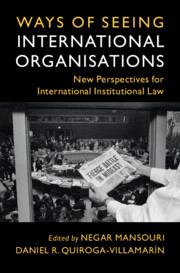In drawing together diverse disciplinary perspectives and traditions of thought to pluralize and complicate ‘ways of seeing’ international organizations, this wonderfully rich volume advances both scholarship on international organizations themselves, and more wide-ranging inquiries about the connections between legal forms, institutional arrangements, and epistemology in international law.
Challenging the traditional lens of international institutional law, Ways of Seeing International Organisations brings fresh perspectives to the field. By interrogating expertise, structures, performance, and capital, this work transcends conventional boundaries, inspiring a critical, multidisciplinary understanding of international organisations’ socio-technical roles and world-ordering visions.
This volume brings together a remarkable set of critical voices, both established and emergent, from the field of international organization studies. The book not only documents the variety and richness of theoretical approaches available for the critical study of international institutions and law, it also provides readers with a wealth of empirical vignettes and case studies to underline their crucial contribution. A great achievement!
Engaging and provocative, this volume shows international organizations as sites of socio-technical struggle. Challenging the dominance of ‘problem-solving thinking’ in international institutional law, Ways of Seeing International Organizations draws from law, history, anthropology, and political science to provide a rich description of institutional practices and their distributive effects. A sophisticated, unconventional, and insightful take on the lives of international organizations.

